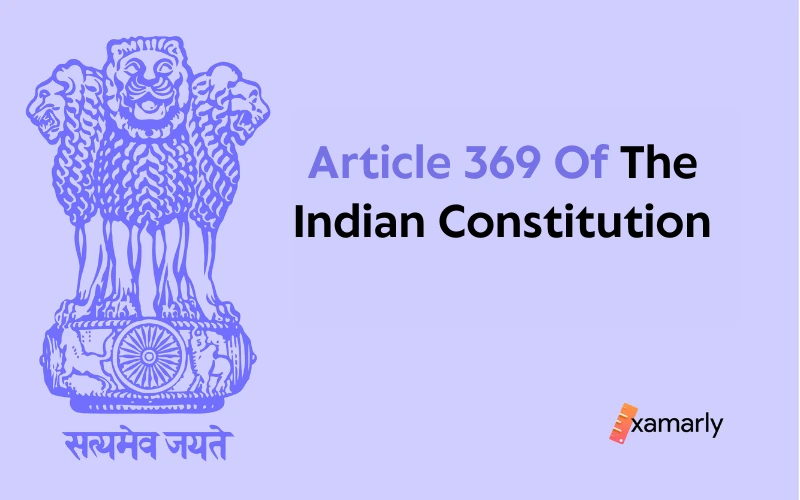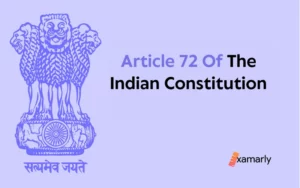Article 369 of the Indian Constitution grants Parliament the temporary power to make laws concerning certain matters that are listed in the State List as if they were listed in the Concurrent List.
The State List is a list of subjects on which only the state governments have the power to make laws. The Concurrent List is a list of subjects on which both the Union government and the state governments have the power to make laws.
This temporary power granted to Parliament is valid for a period of five years after the commencement of the Constitution.
This page covers Article 369 and its provisions which will help you to understand the said Article clearly.
What Is Article 369 Of The Indian Constitution?
Its provisions are as follows:
Regardless of anything contained in this Constitution, Parliament shall have the authority to pass legislation regarding the following topics for a period of five years from this Constitution’s inception, just as if they were listed in the Concurrent List, namely:—
(a) trade and commerce within a state, as well as the production, supply, and distribution of certain goods. These goods include cotton and woolen textiles, raw cotton (involving ginned cotton and not ginned cotton or kapas), cotton seed, paper (involving newsprint), foodstuffs (such as edible oilseeds and oil), cattle fodder (such as oil-cakes and other concentrates), coal (such as coke and derivatives of coal), iron, steel, and mica;
(b) offenses against the law pertaining to any of the matters stated in clause (a), the jurisdiction and authority of all courts other than the Supreme Court with regard to any of those matters, and charges with regard to any of those matters but excluding fees taken in any court,
However, any law passed by Parliament that, but for the provisions of this article, Parliament would not have been competent to make, shall, to the degree of incompetency, stop to have forced upon the expiration of the stated term, with the exception of actions done or omitted to be done before the expiration thereof.
Conclusion
In conclusion, Article 369 of the Indian Constitution granted Parliament the authority to legislate on a small number of specific State List topics like food, coal, iron, cotton, and woolen textiles, as though they were Concurrent List topics. This was in effect for five years following the Constitution’s entry into force.
For additional readings:
| Article 346 Of The Indian Constitution | Article 347 Of The Indian Constitution |
| Article 363 Of The Indian Constitution | Article 314 Of The Indian Constitution |
FAQs
What Is State List?
The state list refers to the significant issues on which the state government may pass legislation. The crucial topics are local governance, agriculture, the police, etc.
What Is A Concurrent List?
The concurrent list is a list of 52 different topics for which laws can be enacted not just by Parliament but also by the respective state legislatures.
What Is Article 369 Of The Constitution Of India?
According to Article 369 of the Indian Constitution, Parliament has the temporary authority to pass laws pertaining to those issues specified in the State List as though they were on the Concurrent List.
In Which Part Of The Indian Constitution Is Article 369 Outlined?






